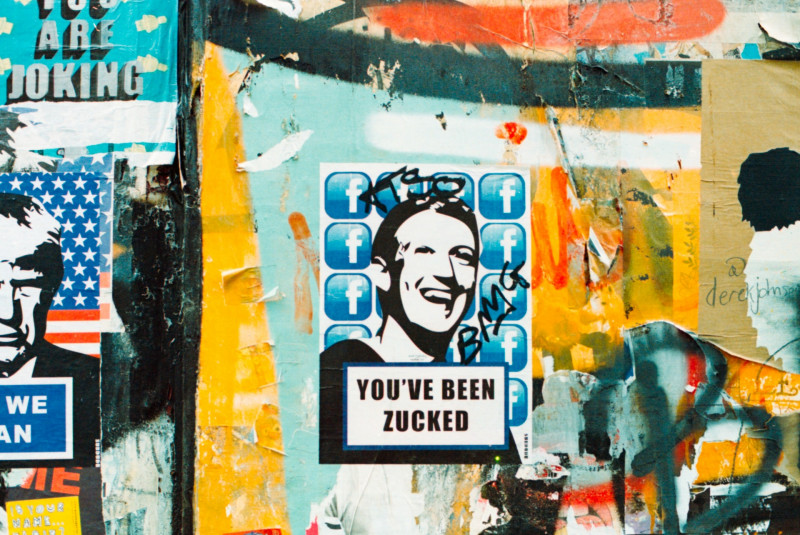Reason #2 Lack of Corporate Responsibility
I found Facebook’s reaction to broadcasting the Christchurch Mosque Shootings absolutely pathetic. I get why the attack was broadcast. The same algorithms that measure engagement for cute puppy videos would have measured engagement for a video of 51 people being murdered & shown it to more of the demographic who engaged with it the most. It’s a terrible situation, but I get how it could happen.
But it was Facebook’s lukewarm reaction to their part in the attacks that really annoyed me. Social media has turned into a hotbed of fake news, mis-information & hate speech - some of it generating real life consequences & generally making our world a worse place to live in. But instead of accepting these issues & facing into them the tech titans are endlessly downplaying/ dancing around them - presumably because they don’t know how to fix it without damaging their profitability. Or possibly they have no idea how to fix it, full stop.
The Reality of “Leaving” Facebook
The reality is while I’ve kicked a habit which had me checking Facebook at least a dozen times a day I haven’t “left” Facebook. I still use Messenger, I still post blog posts like this to Facebook & I still use Facebook Marketplace. I’m not making a moral stand - I’m just adjusting my social media usage so I’m not being constantly aggravated by pieces of software trying to milk me for advertising dollars.
The Good of Kicking my Facebook Habit
The first thing I noticed was I got more time to do other stuff. The second was I was checking my phone less. Both of these are pretty obvious but good pluses. I also breezed through a couple of events (like local government elections) that would have normally generated online aggravation. Instead I could engage by following news & talking with people face-to-face about stuff. Getting news from genuine news sources has been a bonus too.
More time = good, less aggravation = good.
The Not Good of Kicking my Facebook Habit
I do have less of an idea about what my friends are up to. Facebook has become the default place to announce to the world engagements/ pregnancies/ new jobs/ moving house/ getting a pet & other life milestones. While I miss these announcements I don’t miss the other 95% of my Facebook feed.
Part of my post-Facebook plan was to make an effort to contact people directly more often. But it turns out that I’m hopelessly unorganised when it comes to that sort of malarkey & badly out of practice. I’m going to try harder in 2020.
And Finally: Yes, I still use Social Media
Yes while I no longer check Facebook & Instagram a dozen times a day, I do still use social media. LinkedIn is part of work, even if it can invite a lot of spam. My use of Reddit has picked up too - but that’s mostly reading about stuff I’m genuinely interested in. My Youtube & podcast consumption has also risen.
But I’ve also created an online community called “Sift”. It’s subscription based which means it’s funded by the users for the users. It’s had over 4,100 posts in 5 months & has discussed everything from mountain bikes to caravans to electric kettles to Fonterra. Call me old fashioned but I do enjoy linear discussions where insightful people write thoughtful responses containing well-formed paragraphs & Sift is full those.
Summary
After spending 12 years on the Facebook I thought I honestly thought it would be harder to dump.
From a quality of life viewpoint I do miss knowing what people are up to, but the extra time & reduced aggravation of not checking Facebook are too good to pass up.
For social media in general we already know that Facebook usage has plateaued & is beginning to decline. Facebook has dominated the social media landscape for the past decade but newer services like TikTok - which are aimed at different (younger, non-Western) audiences - are on the rise.
While I’d dearly like to see a return to smaller interest based online communities I’m not sure if there is business models that can support them en-masse.
As always a big part of why I enjoy working with online technology is the constant evolution in how we communicate & engage.
Photo by Annie Spratt Thought Catalog


